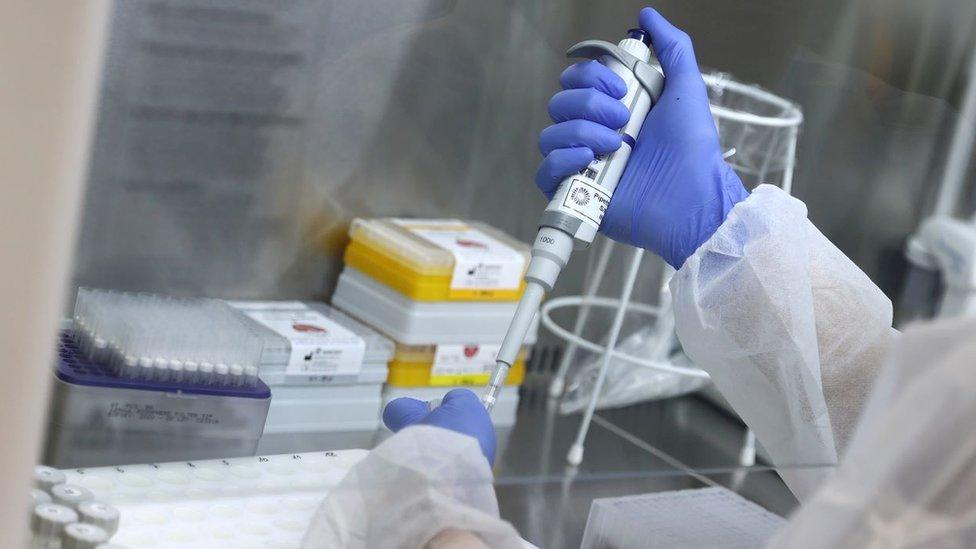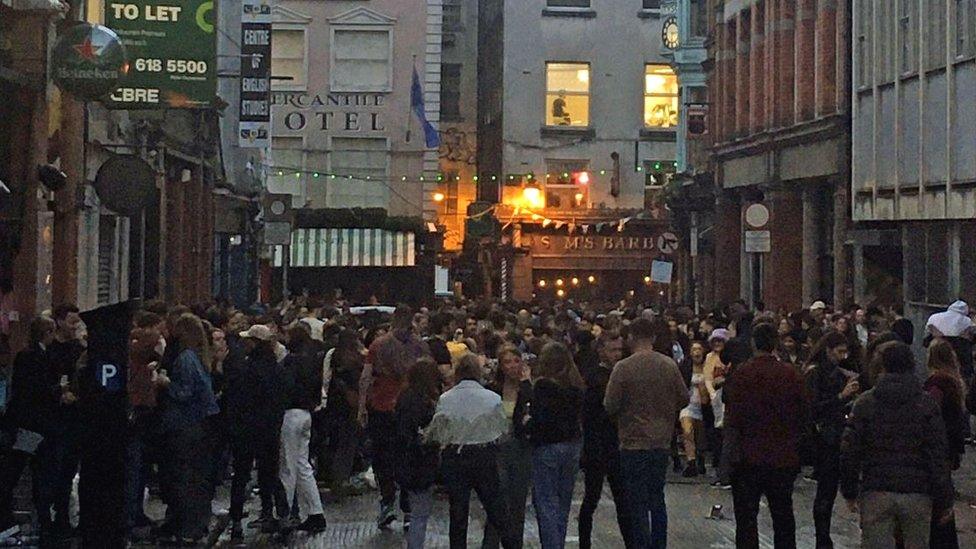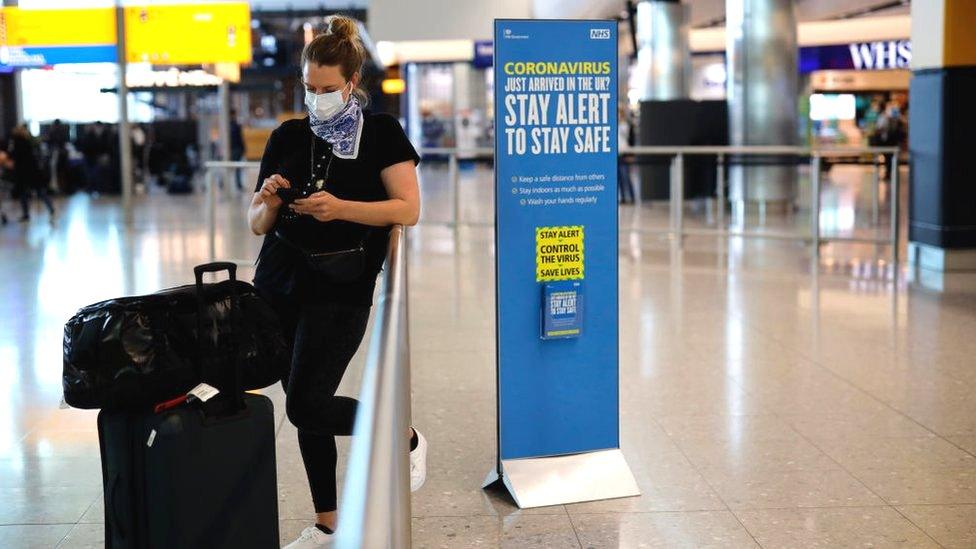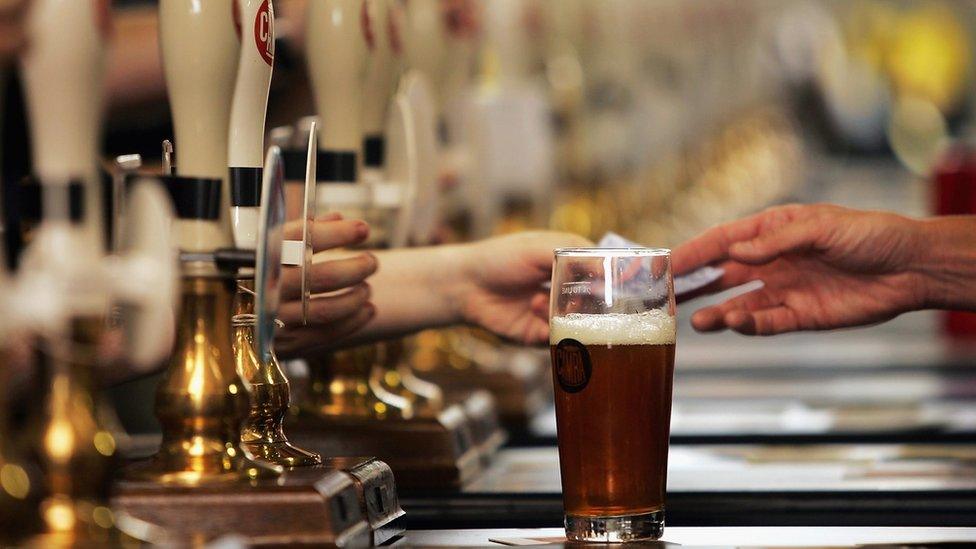Coronavirus: Republic of Ireland's R number rises back to one
- Published

All of the new Covid-19 infections reported on Thursday were people aged under 44
Irish health officials have urged the public to follow coronavirus guidelines after the Republic of Ireland's R number rose to one or just above one.
The R number is the average number of people an infected person passes Covid-19 on to after contracting the disease.
Internationally viewed as an important measure in tracking the spread of the virus, the goal is to keep R below one.
Ireland's R rate rise was confirmed by the National Public Health Emergency Team (NPHET) on Thursday evening.
A further six coronavirus-related deaths were also confirmed on Thursday, bringing Ireland's overall death toll to 1,743.
"There is an immediate need for all of us to take care and caution in our decisions and actions," said Prof Philip Nolan from the NPHET.
"We are seeing an increase in the number of reported cases over the last two weeks and the R number is now at or above 1."
Under 25s
Acting Chief Medical Officer Dr Ronan Glynn said all of the new Covid-19 cases reported on Thursday were people under 44 years of age.
Dr Glynn added that 77% of the new infections were detected in people under 25 years of age.
The Republic of Ireland has been gradually easing its Covid-19 lockdown measures and at the start of last week its hotels, restaurants, cafes and pubs which sell food were allowed to reopen.
Hairdressers, barbers, beauty salons, spas and tattoo studios were also allowed to reopen on Monday 29 June, and indoor church services resumed under phase three of Ireland's roadmap to recovery, external.

The country's acting chief medical officer said he would be concerned if people gathered in public places without social distancing this weekend
However, images of crowds gathering outside pubs in Dublin last weekend drew criticism on social media.
Dr Glynn said there was a "variety of contributing factors" linked to the rise in recent infections and a good number of the cases were directly or indirectly related to travel.
He added many of the cases were also linked to "groups having met up" and said this was "not unexpected" given the easing of Covid-19 restrictions.
But he warned: "If we try to go back to living and acting like we did last January, it is only a matter of time before we are facing a significant problem from this disease."
The acting chief medical officer added: "I want to reiterate that this is not about targeting a particular group or age group or any other group in the population - it's not about blame.
"It really is about protecting each other and it's about reiterating the point that we can all get on with the activities that we want to get on with, but we need to do so safely."
Dr Glynn added he would be concerned if people gathered in public places without social distancing this weekend.
On Friday, coronavirus infection rates at Irish meat plants will be discussed at a meeting of the Oireachtas (Irish parliament) Special Committee on Covid-19 Response.
Since the start of the pandemic, there have been 20 infection clusters at meat and poultry plants, resulting in 1,115 cases, according to Irish broadcaster RTÉ, external.
But it also reported there have been no new cases in meat plants since the middle of last month.
- Published2 July 2020

- Published9 July 2020

- Published7 July 2020